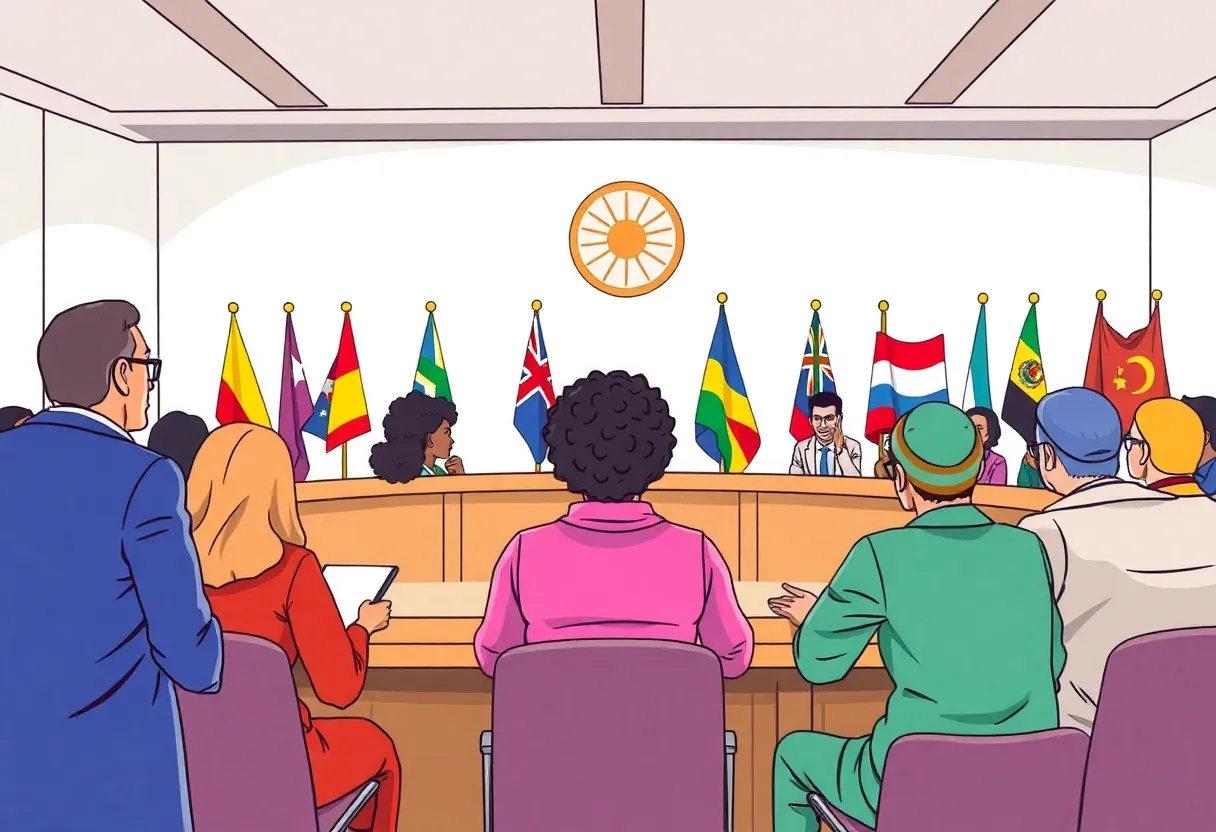News Summary
A federal judge has halted the enforcement of a Florida law aimed at limiting children’s access to social media, ruling it likely violates First Amendment rights. The law, intended to regulate accounts for users under age 16, faced pushback from tech industry groups claiming it infringes on free speech. While the majority of the law was blocked, a provision allowing parents to request account termination for their children under 16 remains. The ruling raises questions about the balance between protecting youth and upholding free speech.
Florida – A federal judge has blocked the enforcement of a controversial law designed to restrict children’s access to social media, emphasizing potential violations of First Amendment rights. Chief U.S. District Judge Mark Walker ruled that the Florida law, which aimed to prevent children under 16 from opening social media accounts, likely overstepped legal boundaries.
The law mandated that children aged 14 and 15 obtain parental consent to create social media profiles and outright banned accounts for those younger than 14. Walker’s decision suggested that it is generally better for parents to monitor their children’s social media activities, rather than imposing restrictions through legislation.
This legal ruling came in response to a preliminary injunction sought by tech industry groups including NetChoice and the Computer & Communications Industry Association, which represent significant companies in the digital space such as Google, Meta Platforms, and Snap Inc. These associations contended that the law infringed upon free speech rights, both for the users and the platforms used for social interaction.
Although Walker blocked the majority of the law, he maintained a provision allowing parents or guardians to request the termination of their children’s accounts on social media platforms if they are under 16. The judge noted that the legislation in question was not “narrowly tailored” to address legal standards set for First Amendment cases.
Initially proposed during Florida’s 2024 legislative session and set to take effect on January 1, 2025, the law was one of the major points of debate among lawmakers and the public. Florida Attorney General James Uthmeier has defended the law, arguing that it was intended to safeguard children from potential harms associated with social media use.
The legal battle began when tech industry groups filed a lawsuit in October. Walker had previously dismissed the claim in March, citing the plaintiffs’ failure to establish legal standing. However, he allowed them the opportunity to revise their lawsuit, leading to this recent ruling.
Walker acknowledged the legitimate concerns voiced by parents and lawmakers regarding the negative impacts of social media on youth, particularly as studies increasingly link social media use to rising levels of depression and anxiety among children. Nevertheless, he stressed the importance of upholding First Amendment rights in the face of these concerns.
The recent ruling has led to speculation about a possible appeal by the state, although Walker declined to delay the injunction during the appeal process. The outcome of this legal development adds another layer to the ongoing discourse surrounding children’s social media usage and the responsibilities of both parents and lawmakers in navigating these concerns.
Deeper Dive: News & Info About This Topic
- NBC Miami: Judge blocks Florida law barring children from using social media
- Wikipedia: Social media
- CBS News: Federal judge blocks Florida from enforcing social media ban for kids
- Google Search: Florida law social media restrictions
- Florida Politics: Lawmakers failed to pass legal aid funding
- Google Scholar: Florida social media law
- CBS News: Florida’s bid to curb kids’ social media use faces legal test
- Encyclopedia Britannica: Social media law
- NBC Miami: Treasury Department warns Desantis anti-woke Florida banking law
- Google News: Florida social media lawsuit

Author: STAFF HERE PETERSBURG WRITER
The ST PETERSBURG STAFF WRITER represents the experienced team at HEREStPetersburg.com, your go-to source for actionable local news and information in St Petersburg, Pinellas County, and beyond. Specializing in "news you can use," we cover essential topics like product reviews for personal and business needs, local business directories, politics, real estate trends, neighborhood insights, and state news affecting the area—with deep expertise drawn from years of dedicated reporting and strong community input, including local press releases and business updates. We deliver top reporting on high-value events such as Grand Prix of St. Petersburg, Localtopia, and SHINE Mural Festival. Our coverage extends to key organizations like the St. Petersburg Area Chamber of Commerce and St. Pete Downtown Partnership, plus leading businesses in finance, manufacturing, and healthcare that power the local economy such as Raymond James Financial, Jabil, and Bayfront Health St. Petersburg. As part of the broader HERE network, including HEREJacksonville.com, HEREOrlando.com, HERETallahassee.com, and HERETampa.com, we provide comprehensive, credible insights into Florida's dynamic landscape.





